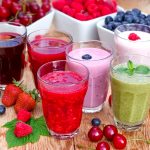53 Organic Living Tips
53 Organic Living Tips
- Faucet water contains fluoride in all 50 states. Purchase a reverse osmosis filter to remove it. A Britta filter won’t be enough. I prefer my Big Berkey filtration system.
- Chlorine in water will evaporate after a few hours. Just leave it in a filter or jug in your fridge overnight.
- Though Nalgene bottles are BPA-free, they’ve been found to leech other chemicals. Use glass bottles to be 100{fa32f3da1db87532d93af57bebf07259016720c780c92cd8735931dd04d79e41} safe.
- Avoid anti-bacterial soap. Residue on dishes and hands gets in the stomach and kills your “good bacteria.”
- Cooking with coconut oil is better than olive oil. It has more Omega-3s and doesn’t oxidize in sunlight or high temperatures.
- Tom’s toothpaste is a great alternative to traditional toothpaste. It’s fluoride free and avoids many additive chemicals. Also check out my remineralizing homemade toothpaste.
- Setting up a vertical garden takes a week or two, but can pay off in organic produce for years.
- Coconut or almond based ice cream is a fantastic way to indulge, without eating dairy.
- Most organic eggs come from cooped up chickens fed organic produce. For true free range eggs, find a local farmer on localharvest.org.
- “Organically made” is not the same as “Organic.” “Freely Traded” is not the same as “Free Trade.” Those former foods aren’t certified.
- Avoid cheap vegetable oils at all costs. They’re high in Omega-6 and very unhealthy.
- Most “grass fed” beef are still grain finished. For 100{fa32f3da1db87532d93af57bebf07259016720c780c92cd8735931dd04d79e41} grass fed beef, look for a local farm you can buy from.
- Most fruits have quite a high glycemic index. The exception are berries (including strawberries) which are low GI and very healthy.
- Think you can’t afford organic? Buy foods that are in season. It’s both more inexpensive and healthier.
- Have a favorite seasonal food? Buy it when it’s in season, then freeze it. It’s healthier than buying it out of season.
- Avoid large fish like tuna. Large fish eat small fish and build up higher concentrations of mercury.









Leave a reply